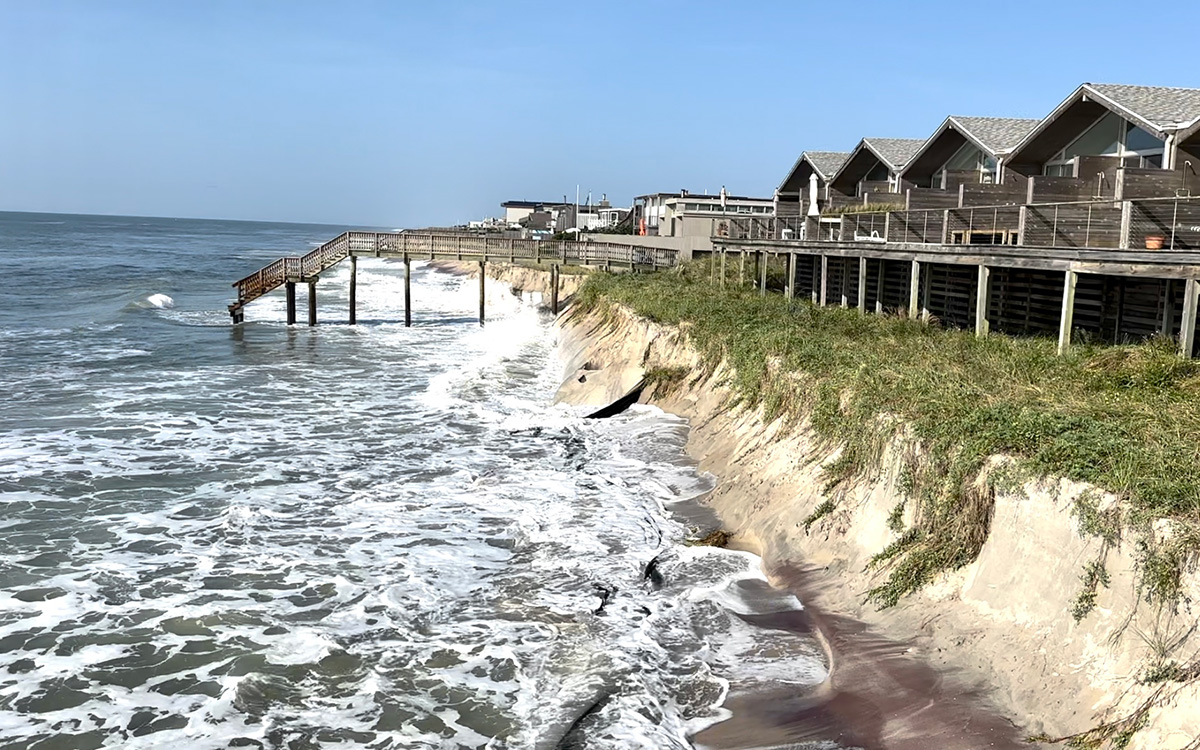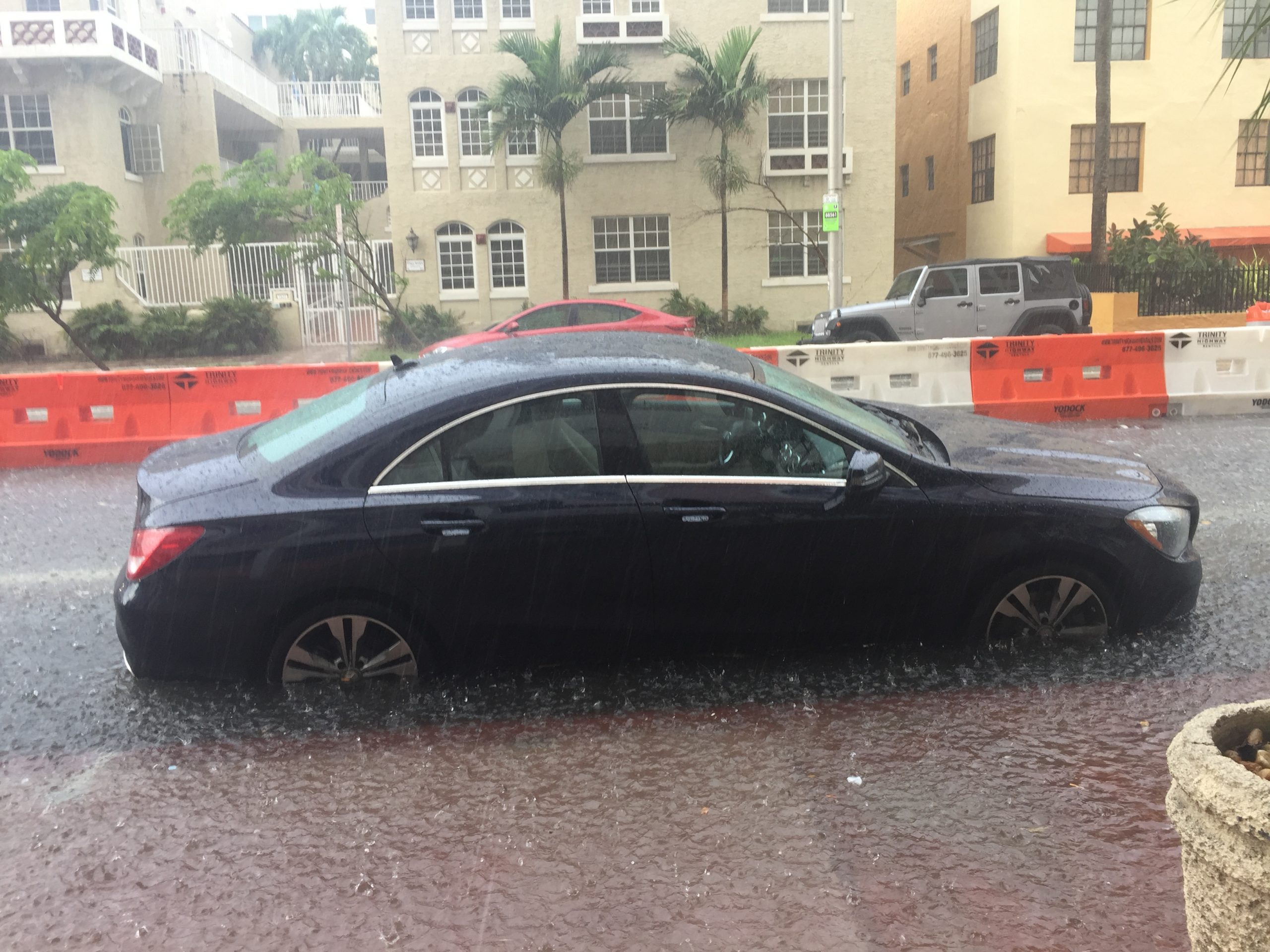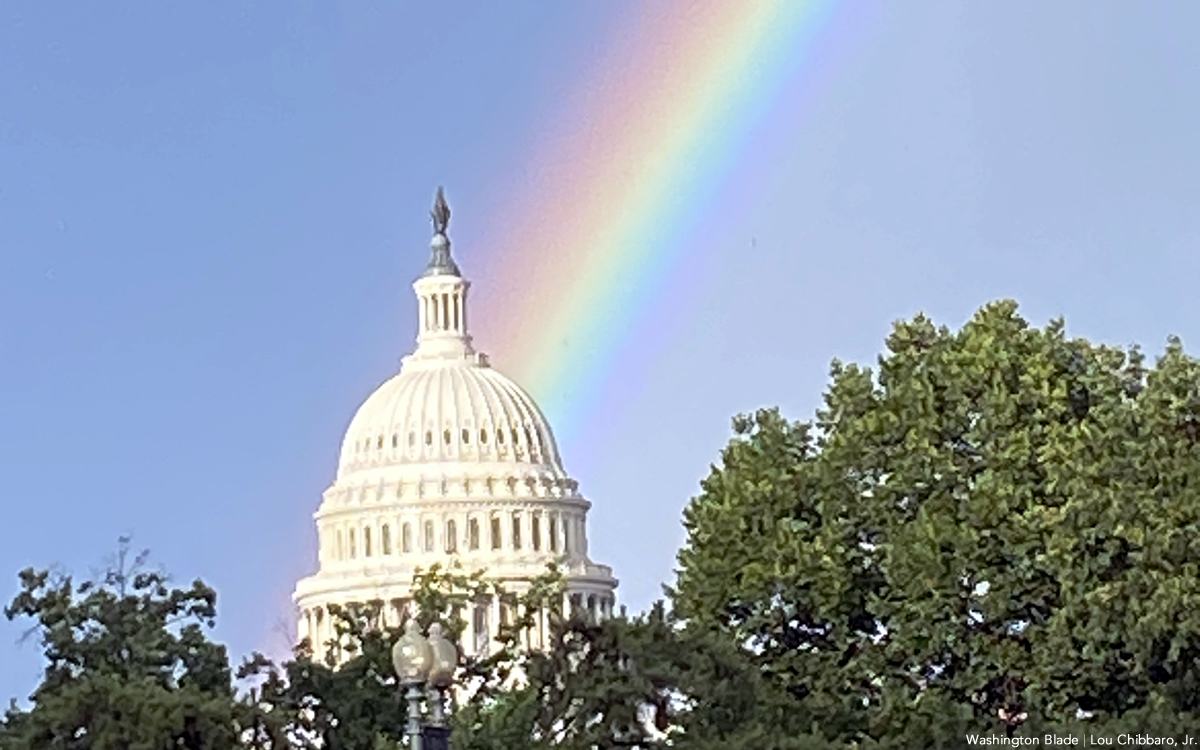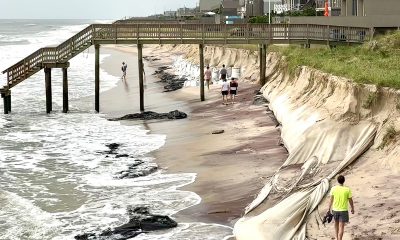National
Climate change threatens LGBTQ resort communities
Provincetown, Cape Cod, other destinations face ‘existential’ challenge

As the world reckons with worsening impacts of climate change, some LGBTQ communities and destinations are grappling with the “existential” threat posed by the crisis.
The United Nations’ annual climate conference will take place in the United Arab Emirates through Dec. 12. LGBTQ climate activists, however, are concerned about representation at COP28 because the meeting is taking place in Dubai, which is in a country that criminalizes consensual same-sex sexual relations.
President Joe Biden on Nov. 14 delivered a statement on climate change policy during his administration. Biden spoke on the American Rescue Plan, the Fifth National Climate Assessment, new transparency about the state of the country’s climate and more.
Biden emphasized “advancing environmental justice for disadvantaged communities, because they’re the ones always left behind.” Evidence of this trend can be found in LGBTQ destinations across the country.
Julian Cyr, a gay Massachusetts state senator who represents Provincetown and other towns on Cape Cod, recognizes the state’s importance to the LGBTQ community, stating that “according to the Census, it may be the highest per capita density of LGBTQ+ people certainly in the United States, and perhaps internationally.”
Provincetown, a popular gay destination located at the tip of Cape Cod, is facing worsening storms as climate change advances. These storms reshape the natural environment as well as damage the built environment. A series of Nor’easters in 2018 flooded Provincetown, damaging homes, businesses and the town hall.
“The climate crisis is … already forcing us to do a lot of planning and reevaluation of coastal resilience of our built environment,” said Cyr.
All hope isn’t lost yet for Massachusetts destinations.
Then-Gov. Charlie Baker, a Republican, in 2022 introduced the Climate Roadmap, which aims for zero carbon emissions by 2050. The state also is building the country’s first offshore wind farm, Vineyard Wind.
Cyr said citizens can push for climate change legislation by making the urgency known to their local elected officials.
“This is truly existential for coastal, low-lying communities like those that I represent,” said Cyr. “It’s really important that constituents weigh in with their elected officials and make sure that they know that this issue is crucially important. I don’t know how we not solve this issue.”
Experts are seeing similar effects in nearby LGBTQ destinations, such as Cape Cod.
“One thing that we do see already is the effect of storms,” said Mark Adams, a retired Cape Cod National Seashore cartographer. “Those storms are the signal of sea level rise.”
Adams said that as a result of rising temperatures and new, intense storms, he is also starting to see damaged ecosystems, unnatural migration patterns of local wildlife, and planting-zones moving northward. Adams told the Washington Blade these changing ecological relationships may mean an uncertain future for life along the coast: the self-sustaining lifestyle and seafood could be at risk as ocean acidification puts shellfish in danger.
“If you can’t get oysters and clams, that would really change life on Cape Cod,” he said.
In addition to the damage caused by storms, Cape Cod’s natural environment is also facing the threat of littering and plastic pollution. While the area’s beaches keep tourism alive, fishing gear and marine debris washing up on the shore are growing concerns for the community.
Adams said this is where the choices individuals make to avoid plastics will make a huge difference in the future of these communities.
“There are little choices we can make to get off of the petroleum stream,” he said.

Aspen Gay Ski Week adapts to warmer winters
Aspen Gay Ski Week was the first gay ski week, and it is the largest such event in the world, and is the only non-profit gay ski week.
Rising temperatures and short winters are growing concerns for destinations like Aspen, Colo., that depend on snow, according to AspenOUT Executive Director Kevin McManamon.
“As our seasons get shorter … we have to plan for the future,” McManamon said.
Colorado has also faced increased forest fires in recent years.
The Marshall Fire in 2021 devastated the state, destroying buildings and killing two people. Increasingly dry conditions feed into these fires, which will mean more impacts on humans, nature, and infrastructure.
McManamon nevertheless said he is optimistic about Aspen Gay Ski Week’s future due to the organization’s forward thinking. One such initiative is its involvement with Protect Our Winters, an organization that advocates for protecting the environment with the support of the outdoor sports community.
“The cool part about being here in Aspen and having a great relationship with Aspen Skiing Company is that they are … on the leading edge of climate change,” said McManamon.
Stronger storms threaten Fire Island
Fire Island Pines on New York’s Fire Island has been a safe haven for the LGBTQ community since the 1950s.
Fire Island Pines Property Owners’ Association President Henry Robin notes natural disasters cause more damage in the community as opposed to those that are across the Great South Bay on Long Island because Fire Island is a “barrier island.”
“When Superstorm Sandy hit, or when a Nor’easter hits, or a hurricane hits, the brunt of the storm is first taken by the Pines,” said Robin.
Robin said “the Pines is thriving” just over 11 years since Sandy, but there is no climate change response. The federal government implemented a beach restoration project for Fire Island, and later, the U.S. Army Corps of Engineers created an engineered beach for the Pines.
Robin also formed three task forces — comprised of community members — to address local concerns, many of which were climate related, according to focus groups and a survey. Robin is also hoping to introduce recycling programs and solar energy to the Pines.
U.S. Supreme Court
Supreme Court declines to hear lawsuit against Montgomery County schools gender guidelines
4th Circuit last August dismissed parents’ case

The U.S. Supreme Court on Monday declined to hear a lawsuit against Montgomery County Public Schools guidelines that allow schools to create plans in support of transgender or gender nonconfirming students without their parents’ knowledge or consent.
Three parents of students in the school district — none of whom have trans or gender nonconfirming children — filed the lawsuit.
A judge on the 4th U.S. Circuit Court of Appeals last August dismissed the case. The plaintiffs appealed the decision to the Supreme Court.

Representatives Suzanne Bonamici (D-Ore.), Mark Pocan (D-Wis.), and Sharice Davids (D-Kan.) reintroduced legislation to increase access to needed services and resources for LGBTQ seniors who live in rural areas this week.
The Elder Pride Act would bolster the capacity and ability of Area Agencies on Aging located in rural communities to better serve and support LGBTQ seniors who often require affirming care, services, and supports that are often underfunded and scarce in many parts of the country.
Recent surveys show that between 2.9 million and 3.8 million LGBTQ people live in rural American communities.
“LGBTQ+ elders and older people living with HIV live in every part of this nation, including rural areas. We all deserve to be able to age in our communities with the services and supports we need to remain independent,” SAGE CEO Michael Adams said in the press release announcing the reintroduction of the legislation. “We commend Representatives Suzanne Bonamici (D-OR), Mark Pocan (D-WI), and Sharice Davids (D-KS) on reintroducing the Elder Pride Act. And we honor the contributions of our many LGBTQ+ trailblazers whose tireless advocacy allowed us to reintroduce this critical bill. We look forward to working alongside Reps. Bonamici, Pocan, and Davids, and our LGBTQ+ pioneers nationwide to pass this legislation.”
“LGBTQI+ seniors should be able to access services and care that meets their unique needs, regardless of where they live,” said Bonamici, chair of the Equality Caucus’s LGBTQ+ Aging Issues Task Force.”Those who live in rural areas frequently face increased barriers, which Congress can break down. The Elder Pride Act will increase resources for programs and services that will improve the lives of LGBTQI+ elders.”
“The Elder Pride Act will improve the overall health and social and economic well-being of LGBTQI+ older adults and seniors living with HIV in rural areas by better equipping senior service providers with resources to address the unique needs of these communities. I’m pleased to introduce this important legislation with my colleagues and co-leaders on the Equality Caucus, Reps. Pocan and Davids,” Bonamici added.
“Rural LGBTQI+ seniors have been lacking access to necessary services and care for too long,” said Pocan, co-chair of the Congressional LGBTQ+ Equality Caucus. “The Elder Pride Act creates opportunities for LGBTQ+ seniors in rural communities, benefiting everyone in the region. I look forward to advancing this important legislation.”
“Many of our LGBTQ+ elders fought tirelessly for equality in a world that refused to accept their identity,” said Davids. “While they overcame tremendous odds to give future generations the rights they deserve, our elders, particularly those in rural communities, continue to face discrimination when accessing long-term care and healthcare. I am proud to support the Elder Pride Act because who you are and who you love should never increase your risk for isolation, poverty, and poor health outcomes as you age.”
The Elder Pride Act complements the Older American Act, which was updated under Bonamici’s leadership, by establishing a rural grant program designed to fund care and services for LGBTQ seniors. The grant would also support programs that:
• Provide services such as cultural competency training for service providers;
• Develop modes of connection between LGBTQI+ older adults and local service providers and community organizations;
• Expand the use of nondiscrimination policies and community spaces for older adults who are members of the LGBTQI+ community or another protected class; and,
• Disseminate resources on sexual health and aging for senior service providers.
A fact sheet on the legislation can be found here, and the full text can be found here.
State Department
State Department travel advisory warns of potential anti-LGBTQ violence
FBI issued similar warning this week

The State Department on Friday issued a worldwide travel advisory that warns of potential violence against LGBTQ people and LGBTQ-specific events.
“Due to the potential for terrorist attacks, demonstrations, or violent actions against U.S. citizens and interests, the Department of State advises U.S. citizens overseas to exercise increased caution,” reads the advisory. “The Department of State is aware of the increased potential for foreign terrorist organization-inspired violence against LGBTQI+ persons and events and advises U.S. citizens overseas to exercise increased caution.”
The advisory further urges U.S. citizens to:
- Stay alert in locations frequented by tourists, including Pride celebrations and venues frequented by LGBTQI+ persons.
- Enroll in the Smart Traveler Enrollment Program (STEP) to receive information and alerts and make it easier to locate you in an emergency overseas.
- Follow the Department of State on Facebook and Twitter.
The Federal Bureau of Investigation and the Homeland Security Investigations earlier this week issued a similar advisory.
The advisory notes June 12 will mark eight years since the massacre at the Pulse nightclub in Orlando, Fla.
-

 Autos3 days ago
Autos3 days agoSeductive sport-utes: Buick Evista, Subaru Outback
-

 Congress3 days ago
Congress3 days agoHouse ethics complaint filed over GOP staffer’s anti-trans email
-

 Real Estate3 days ago
Real Estate3 days agoYes, there are other coastal Delaware towns besides Rehoboth
-

 State Department4 days ago
State Department4 days agoState Department travel advisory warns of potential anti-LGBTQ violence












